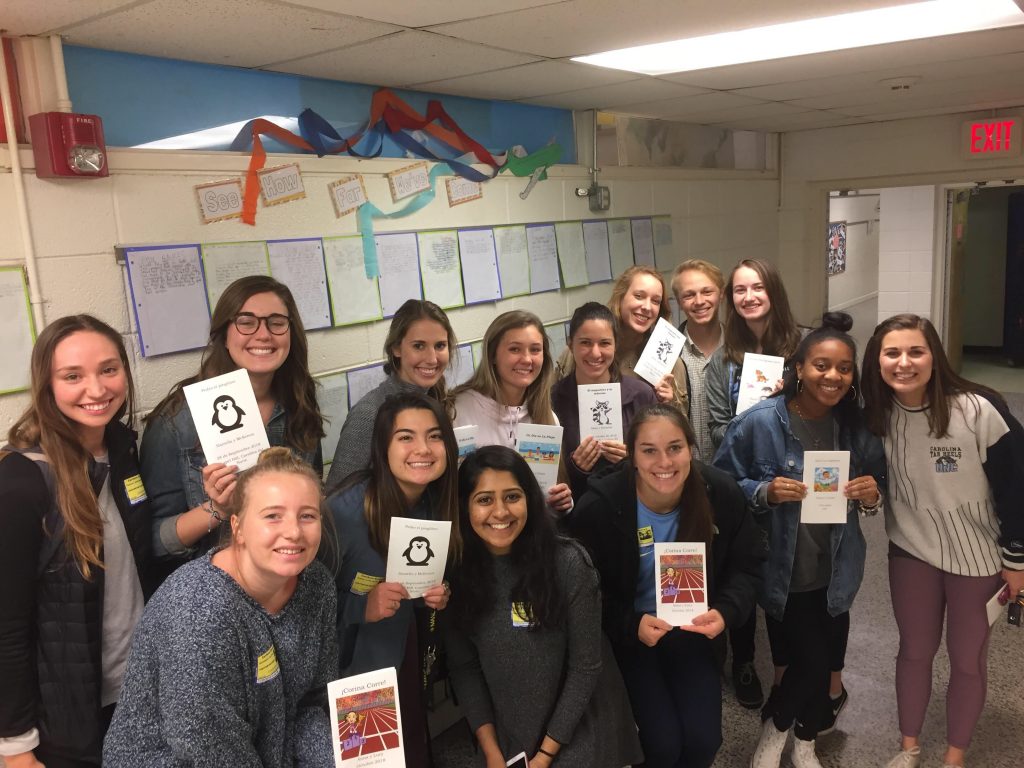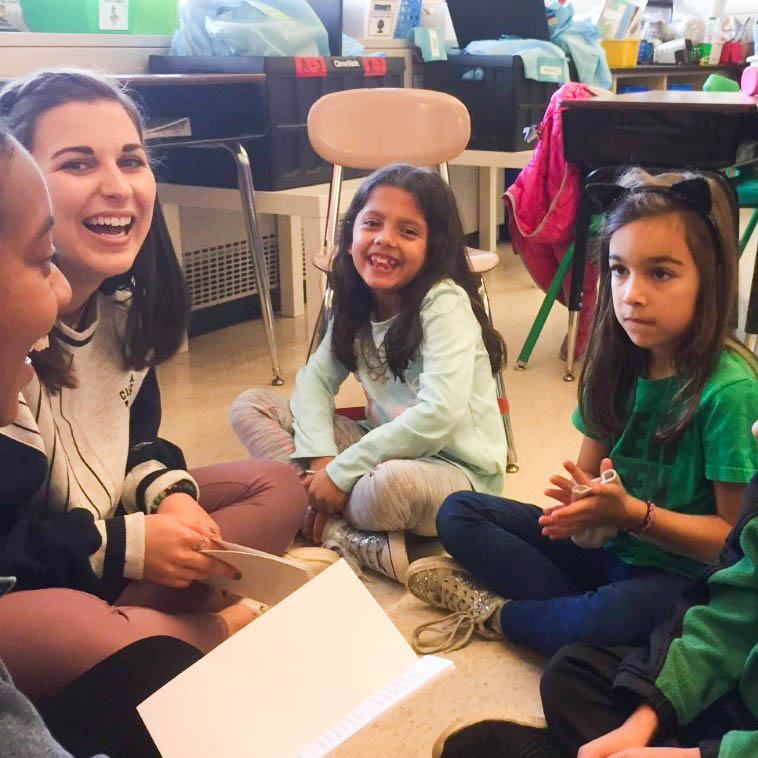By Eve Elliott, APPLES Summer Fellow
Tucked in a back meeting room of the Carolina Union, service-learning leaders from across campus scribbled down notes.
Their eyes were locked on Heather Knorr. At the front of the room, Knorr was excitedly remembering the children’s books her students had created during her recent service-learning Spanish course. Beaming, Knorr shared insights on how the service activity had impacted her students. She listed off the community leaders who’d started as partners and become friends.
This scene was unfolding in the APPLES Course Development Institute, which takes place every May. It was clear from the spirit in her voice that, for Knorr, service was more than just the sum of her anecdotes. In fact, service has always been prominent in Knorr’s life story.
“I had the opportunity to volunteer at a local school while I was studying at Washington and Lee University in my undergraduate years, and I loved it,” Knorr said. “I felt more connected to my local community. The kids made a big impression on me and inspired me to become a teacher later on.”
Knorr followed her passion for Spanish education and service to Nicaragua, where she helped build a library and organize English as a Second Language (ESL) classes in the community. She also went to Ecuador, helping start the country’s first adult English classes and elementary school English immersion program on Isabela island in the Galapágos, Ecuador. Through the years, she traveled and served in various other Spanish-speaking countries.
Eventually, Knorr’s passions led her to UNC-Chapel Hill, where she teaches Spanish courses and — through the Carolina Center for Public Service — has developed service-learning partnerships with local community organizations like International Spanish Language Academy, El Centro Hispano, Kidzu Children’s Museum, Chapel Hill-Carrboro City Schools, and Farmer Foodshare.
These relationships are key to Knorr’s APPLES Service-Learning Course SPAN 329: Spanish for the Professions. Knorr said the connections forged between her students and partners drive the course’s real-life value.

“I believe we become better at our profession when we contribute to our local community,” Knorr said. “Many of my students will go on to have a career in health, business or law. This experience of working with local Spanish-speaking members of our community helps students grow their language skills, learn more about other cultures and forge lasting personal relationships — which help develop trust between students and their future patients or clients.”
Beyond grammar and speaking skills, Knorr passes on to her students the importance — and possibilities — of authentic relationship-building.
For example, one of Knorr’s students participated in a language exchange with a native Spanish speaker whose two jobs didn’t allow time for formal classes. Knorr said the language exchange was a meaningful experience for both the traditional student and the nontraditional student.
“They formed a friendship and continued to meet up until my student graduated, long after our class ended.”
And that’s what Heather Knorr’s work is all about: instructing Spanish courses, building service-learning partnerships — and, ultimately, facilitating meaningful connections between students and communities.

